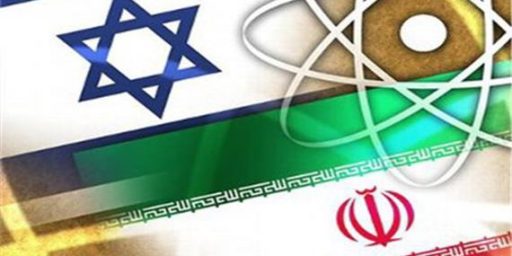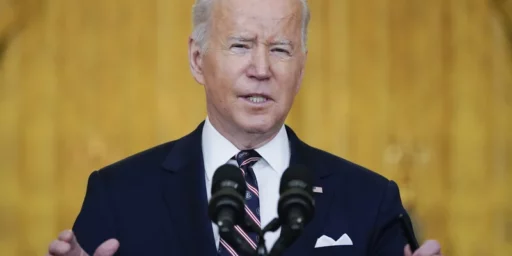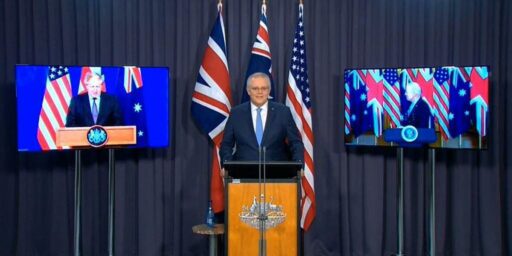Leaders Call For End To War Most People Have Forgotten About
If it weren’t for this statement coming out of the G-20 Summit, I wouldn’t have known that Armenia and Azerbaijan were still fighting:
The presidents of the United States, Russia and France issued a joint statement on Monday calling for a peaceful settlement to the more than 20-year war between Armenia and Azerbaijan over the disputed territory of Nagorno-Karabakh.
Clashes along the Azerbaijan-Armenia border have intensified in recent weeks, with soldiers killed on each side. The renewed fighting, in violation of prior ceasefire agreements, has stirred fears of wider bloodshed and drawn international condemnation.
The statement issued by the three presidents, Barack Obama, Vladimir V. Putin and François Hollande, at the Group of 20 meeting in Mexico, faulted the leaders of Armenia and Azerbaijan for not following steps toward an agreement urged last year. The statement called on them to move swiftly to make “the important decisions necessary to reach a lasting and peaceful settlement.”
The United States, Russia and France co-chair the Minsk Group, which was created in 1992 by the Organization for Security and Cooperation in Europe to help settle the Nagorno-Karabakh dispute.
“Military force will not resolve the conflict and would only prolong the suffering and hardships endured by the peoples of the region for too long,” the presidents said. “Only a peaceful, negotiated settlement can allow the entire region to move beyond the status quo toward a secure and prosperous future.”
The unity on addressing the Nagorno-Karabakh conflict provided a glimmer of consensus between Mr. Obama and Mr. Putin whose face-to-face meeting on Monday was largely characterized by their disagreement over how to handle the conflict in Syria.
The Nagorno-Karabakh dispute, however, has proved largely intractable. The statement in Mexico followed an earlier meeting on Monday in Paris between ambassadors from the United States, Russia and France and the foreign ministers of Armenia and Azerbaijan. The meeting seemed to yield little progress.
Well, to be fair, when a war has been going on for two decades statements from diplomats typically aren’t going to accomplish much.






Most people have not forgotten this war–most of us weren’t aware of it to begin with.
If you get a chance browse the Uppsala Conflict Data Program. Wars are something as a species we are quite good at.
“If it weren’t for this statement coming out of the G-20 Summit, I wouldn’t have known that Armenia and Azerbaijan were still fighting:”
I didn’t either, although I assumed that the border there would be a dangerous place.
At first I thought you were talking about the War of 1812!
Something about this reminds me of Anatole France’s comment “a language is nothing more than a dialect with an army behind it.”
I think here the equivalent would be “a war is nothing more than a cross-border squabble with some soldiers on each side.”